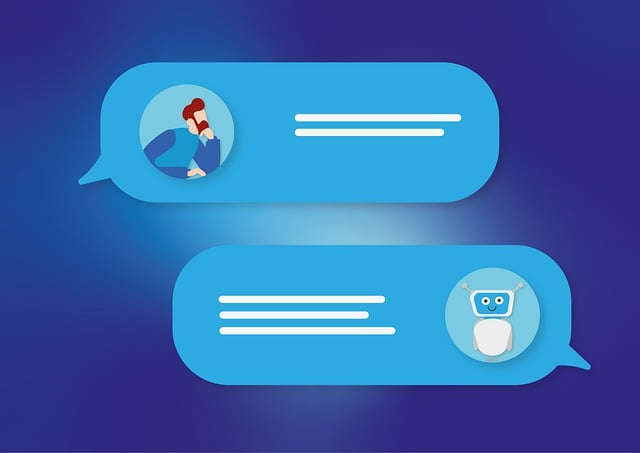The rapid adoption of AI chatbots has transformed human-computer interaction, offering 24/7 support and personalized experiences across industries. However, their deployment presents significant privacy challenges due to data collection. Robust security measures, transparent data handling, and user consent mechanisms are crucial for maintaining trust. Bias mitigation is essential through diverse datasets and fairness metrics during training, as AI chatbots must evolve ethically. Scrutiny over transparency and accountability is critical, with auditing protocols and error correction needed to prevent unintended consequences in sectors like healthcare and legal. The impact on employment is a concern, but AI chatbots are more likely to augment human labor than replace it. Proactive ethical measures, including regulatory frameworks, are necessary to ensure the benefits of AI chatbot integration while protecting user rights and fostering responsible development.
The rapid rise of AI chatbots has promised transformative interactions, revolutionizing how we access information and services. However, their deployment raises significant ethical concerns. From protecting user privacy and addressing algorithmic bias to ensuring transparency and mitigating job displacement, this article delves into critical considerations surrounding AI chatbots. Understanding these implications is vital for responsible development and regulation of this promising technology.
- The Rise of AI Chatbots: A Promising Technology
- Privacy Concerns: Protecting User Data
- Bias and Fairness: Addressing Pre-existing Stereotypes
- Transparency and Accountability: Unveiling the Black Box
- Job Displacement: Impact on Employment
- Ethical Guidelines and Regulation: Ensuring Responsible AI Deployment
The Rise of AI Chatbots: A Promising Technology

The rise of AI chatbots has been nothing short of remarkable, transforming the way we interact with technology. These sophisticated conversational agents, powered by advanced natural language processing and machine learning algorithms, are now an integral part of our daily lives. From virtual customer service representatives to personal assistants, AI chatbots offer unprecedented levels of convenience, efficiency, and accessibility. Their ability to understand and generate human-like text has made them a game-changer in various industries, revolutionizing the way businesses operate and customers engage with services.
AI chatbots are not just a trend; they represent a promising technology with immense potential. They can handle complex tasks, provide 24/7 support, and offer personalized experiences at scale. As these chatbots continue to evolve, they will play an increasingly crucial role in shaping our future, particularly in the realm of human-computer interaction. However, with great promise comes the need for careful consideration of the ethical implications associated with their deployment to ensure they are used responsibly and for the betterment of society.
Privacy Concerns: Protecting User Data

The deployment of AI chatbots raises significant privacy concerns, especially regarding the protection of user data. These advanced language models learn and grow from vast datasets, which often include personal information. As users interact with AI assistants, they share details about their lives, preferences, and behaviors. Protecting this data is paramount to maintaining user trust. Developers and organizations must implement robust security measures to safeguard sensitive user information from unauthorized access or misuse.
Encryption techniques, secure storage systems, and transparent data handling practices are essential tools in mitigating privacy risks. Users should have control over their data, with clear options for consent and the ability to opt-out of data collection. Regular audits and updates to privacy policies ensure that users remain informed about how their information is used, fostering a sense of security and trustworthiness around AI chatbot interactions.
Bias and Fairness: Addressing Pre-existing Stereotypes

AI chatbots, while offering unprecedented convenience and efficiency, must be developed with a keen awareness of potential biases embedded in their training data. These biases can perpetuate and amplify existing societal stereotypes, leading to unfair or discriminatory outcomes. For instance, if an AI chatbot is trained on text that contains gender, racial, or cultural stereotypes, it may inadvertently reflect and reinforce these prejudices in its responses.
Addressing bias requires a multi-faceted approach. Developers must ensure diverse and representative data sets are used to train AI chatbots, scrutinizing the source of data for any pre-existing biases. Additionally, implementing fairness metrics during training can help identify and mitigate discriminatory patterns in chatbot behavior. Continuous monitoring and updates are crucial to ensure these technologies evolve in alignment with ethical standards, promoting fairness and equality in their interactions with users from all backgrounds.
Transparency and Accountability: Unveiling the Black Box

AI chatbots, while offering immense potential, raise significant concerns regarding transparency and accountability. These systems, often described as “black boxes,” operate based on complex algorithms and massive data sets, making their internal workings difficult to understand. Without clear insight into how these models arrive at their decisions, it becomes challenging to identify biases, errors, or unethical outcomes.
This lack of transparency can lead to unintended consequences, particularly when AI chatbots are deployed in sensitive areas like healthcare or legal services. Ensuring accountability involves not only understanding the technology but also establishing protocols for auditing, correcting mistakes, and holding developers and users responsible for the impact of these intelligent systems.
Job Displacement: Impact on Employment

The deployment of AI chatbots has sparked a conversation about their potential impact on employment and job displacement. As these intelligent assistants become more sophisticated, there are concerns that they might replace certain jobs, especially those involving routine tasks and customer service. AI chatbots can handle simple inquiries, provide quick responses, and process data efficiently, which could lead to reduced demand for human labor in specific sectors. For instance, call centers and help desks could see a significant shift as AI chatbots take on the role of initial point-of-contact support, potentially reducing the number of customer service representatives needed.
However, it’s essential to recognize that while AI chatbots might displace some jobs, they also create new opportunities. The transition may require reskilling and upskilling of workers to adapt to the changing job market. As AI takes on repetitive tasks, human employees can focus on more complex, creative, and strategic roles, fostering a collaboration between humans and machines. This shift could lead to improved productivity, enhanced customer experiences, and the emergence of new career paths in AI development, maintenance, and ethical oversight, ensuring a future where AI chatbots augment rather than entirely replace human labor.
Ethical Guidelines and Regulation: Ensuring Responsible AI Deployment

The deployment of AI assistants, particularly AI chatbots, comes with a host of ethical considerations that require careful attention and proactive measures. As these technologies continue to evolve and integrate into various aspects of daily life, establishing robust ethical guidelines and regulations is paramount. These guidelines should focus on ensuring transparency, fairness, and accountability in the development and use of AI systems. Developers must be transparent about how data is collected, used, and protected, fostering trust among users.
Regulation plays a pivotal role in promoting responsible AI deployment. Governments and international bodies need to collaborate on creating comprehensive legal frameworks that address privacy, data security, bias mitigation, and the potential impact on employment. Such regulations should also mandate clear guidelines for obtaining informed consent from users, ensuring their rights are protected while benefiting from the enhanced capabilities of AI assistants.






